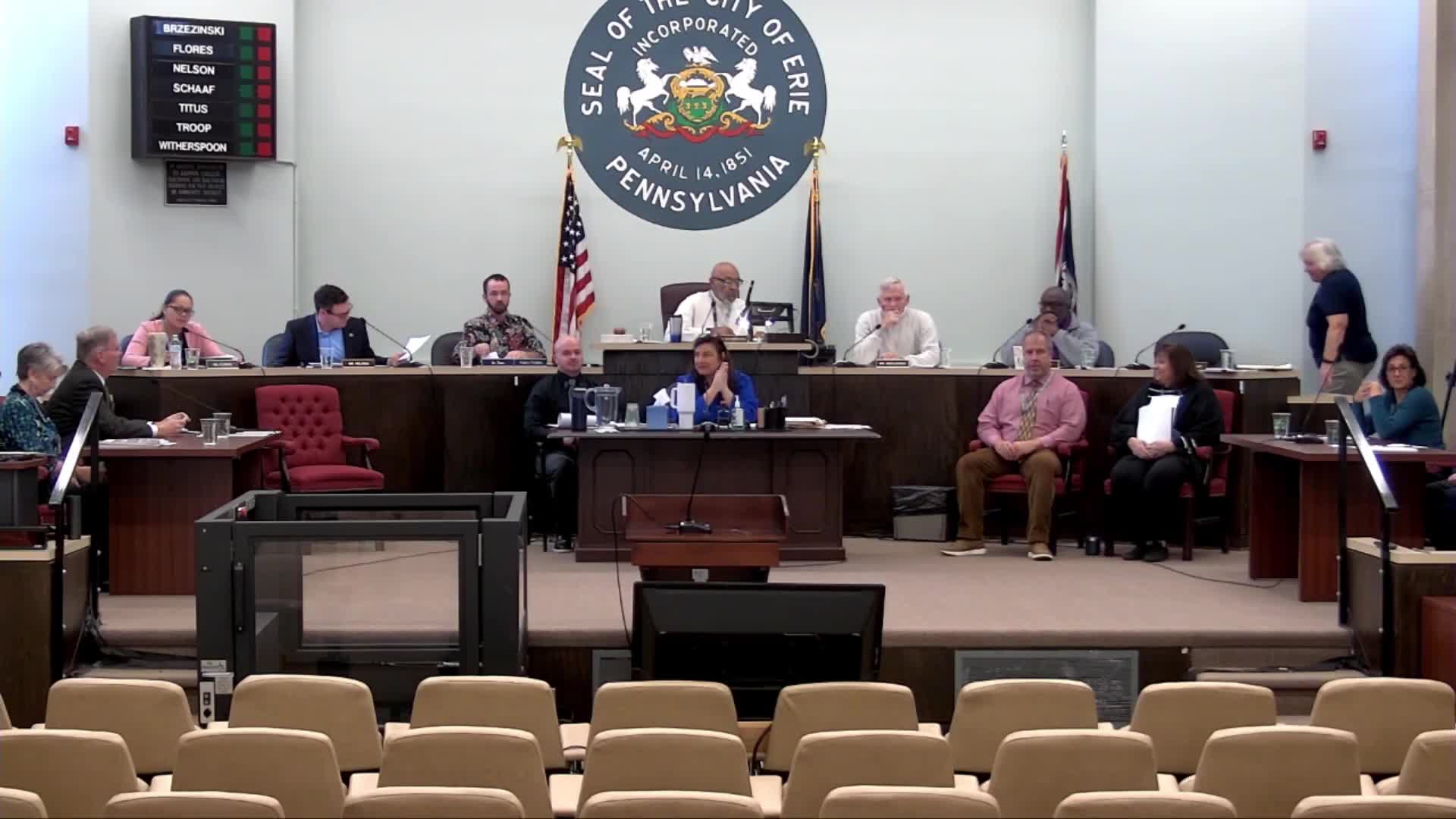Erie mayor presents $112.6 million preliminary 2026 budget, proposes 1-mill option and parks staffing additions
Get AI-powered insights, summaries, and transcripts
Subscribe
Summary
Mayor Joe Schumberg presented the city—s draft 2026 general fund budget and five-year forecast, proposing a preliminary budget of about $112.6 million and a recommended 1-mill property tax option aimed at smoothing out future deficits.
Mayor Joe Schumberg presented the city—s draft 2026 general fund budget and a five-year forecast on Nov. 5, proposing a preliminary budget of approximately $112.6 million and outlining three scenarios to address structural deficits.
Schumberg said the 2026 draft represents an increase of about $2.4 million (approximately 2.25%) over 2025 and that salaries and benefits account for roughly 90% of operating costs. He said the administration met with department directors to review every line item and made targeted cuts before finalizing the preliminary numbers.
The administration described three balancing scenarios: (1) a recommended 1-mill property tax increase, which the administration said would generate roughly $2.87 million (the presentation also referenced a figure of $3,154,475 for one mill in the same discussion); (2) no millage increase in 2026 while using more of the water-lease prepayment, which would require a larger millage increase in 2027 (the administration estimated a near-3-mill need in 2027 under that path); and (3) dependence on whether the state Legislature changes the Local Services Tax (LST) ceiling, which the administration said could shift some burden to nonresident workers. The mayor noted that a 1-mill increase equates to about $100 per $100,000 of assessed value under the administration—s estimates.
Schumberg outlined the administration—s use of a water-lease prepayment fund the city set aside to cover structural deficits. He said the city set aside $15.5 million from that prepayment and has used about $8.8 million to date, leaving roughly $4,964,399 under the administration—s accounting. The draft budget scenario proposed splitting remaining prepayment use between 2026 and 2027 to smooth impacts for taxpayers.
On capital and debt-service items, the administration said a roughly $20.9 million bond issue for the Public Safety Complex will raise general fund debt service, but that $1,081,572.88 of bond proceeds were capitalized into the debt service fund to assist repayments in 2026 and 2027. The presentation also listed ongoing police equipment and service contracts and said grant receipts and contract restructuring reduced 2025 payments by about $400,000.
The draft capital budget includes a fire truck ordered in 2023 expected to arrive in September 2026, and the mayor said the city must resume distributions from the water reserve fund that had been adjusted in prior years.
The administration told council the Bureau of Parks is severely understaffed and proposed adding three teamsters. The presentation said the city currently has seven parks staff responsible for roughly 50 parks, that the bureau had been cut from higher FTE levels in past years, and that a consultant—s benchmarking analysis found comparable communities employ many more park staff.
Officials said a land-transfer vote to Erie Events left the Erie Zoo—s land status unchanged in practice because a final contract has not been completed. The administration also noted sewer-rate increases follow a 2024 ordinance put in place to cover an approximately $335.5 million Erie Sewer Authority bond issue; the administration estimated sewer-related revenue of about $2,342,500. Refuse fees were budgeted to increase about $4.01 per quarter (estimated yield $541,834), and the stormwater fee structure would remain unchanged under current tiers.
Council members asked questions and lauded the inclusion of multi-year millage projections in the five-year forecast. Administration said public budget sessions will begin Nov. 6 with additional sessions on Nov. 11, Nov. 13 and Nov. 20 at 5:30 p.m., and that a final budget discussion is anticipated after the Dec. 3 council meeting.
"I am proud of how the process unfolded and the thoughtfulness of each director as they looked ahead to priorities and needs, but held the line on expenses," Schumberg said during the presentation.
Next steps: council will review the draft in scheduled budget sessions and may adopt changes before the final vote later in the year.
